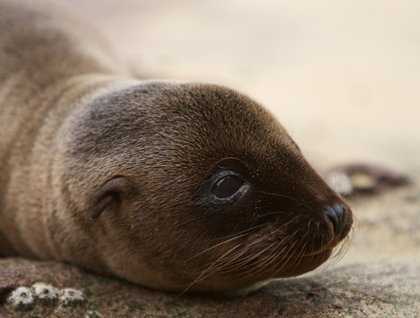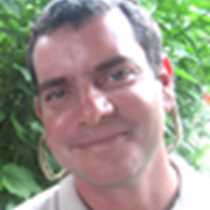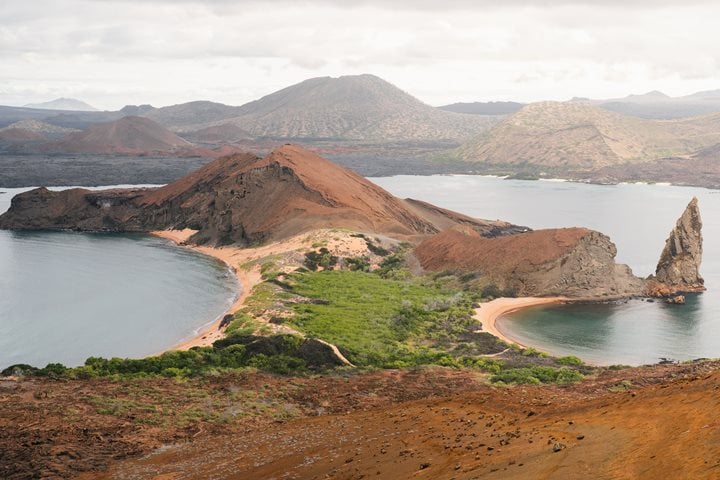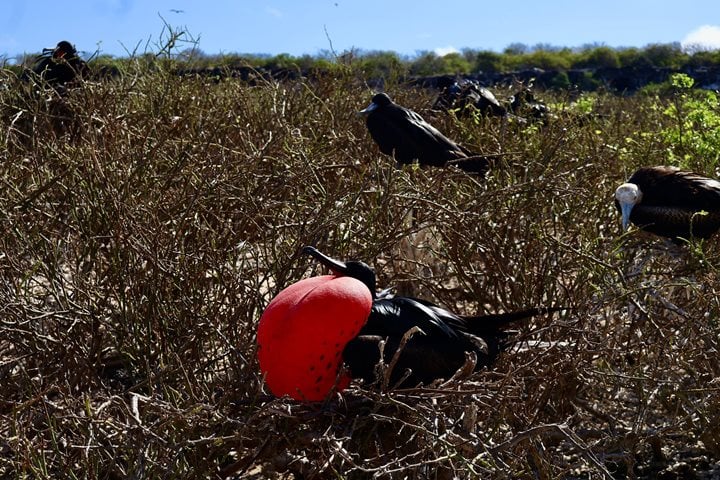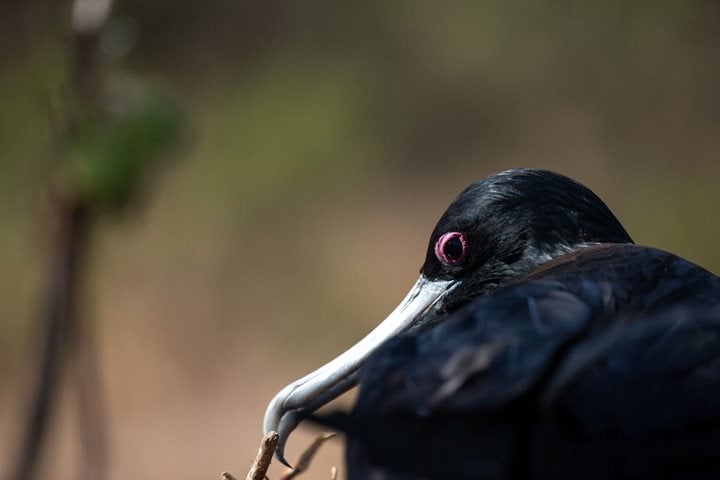This morning we had our last wet landing, this time on a green, sandy beach made up of an inorganic mix of volcanic ashes and tiny pieces of olivine crystals. After drying our feet and putting our shoes on, we were ready to climb through an eroded trench, created by the erosion of water and wind over millions of years. Punta Pitt is the closest point to mainland Ecuador, about 600 nautical miles away, and one of the oldest islands of the archipelago. The whole area is made of eroded tuff, creating a dramatic landscape. This dry, unforgiving land is a nesting spot for the three species of boobies found in these waters. We observed red-footed boobies nesting on trees and flying by. The vegetation introduced another surprising feature of this site. We saw the always colorful common carpet mat plant, its reddish coloration painting the edges of the surrounding cliff, the Galapagos Nolana with its succulent leaves, and the endemic Chatham’s giant daisy, growing on the flanks close to the top of the craters. Then we headed back to the beach for a refreshing swim after the demanding hike.
The afternoon took us to Kicker Rock—another noticeable tuff cone. This time we snorkeled by the edges of this volcanic formation. Many invertebrates, from bright colored sponges to sea urchins and cup corals colonize the external walls of the cone. Many sea turtles were spotted, as well as Galapagos and black tip reef sharks. It was a great adventure. At the end of the afternoon, everyone met at the sky deck, where we circumnavigated Kicker Rock while witnessing an impressive sunset over a glass of wine.
Another successful trip has ended: full of adventure and great company in this piece of heaven.

